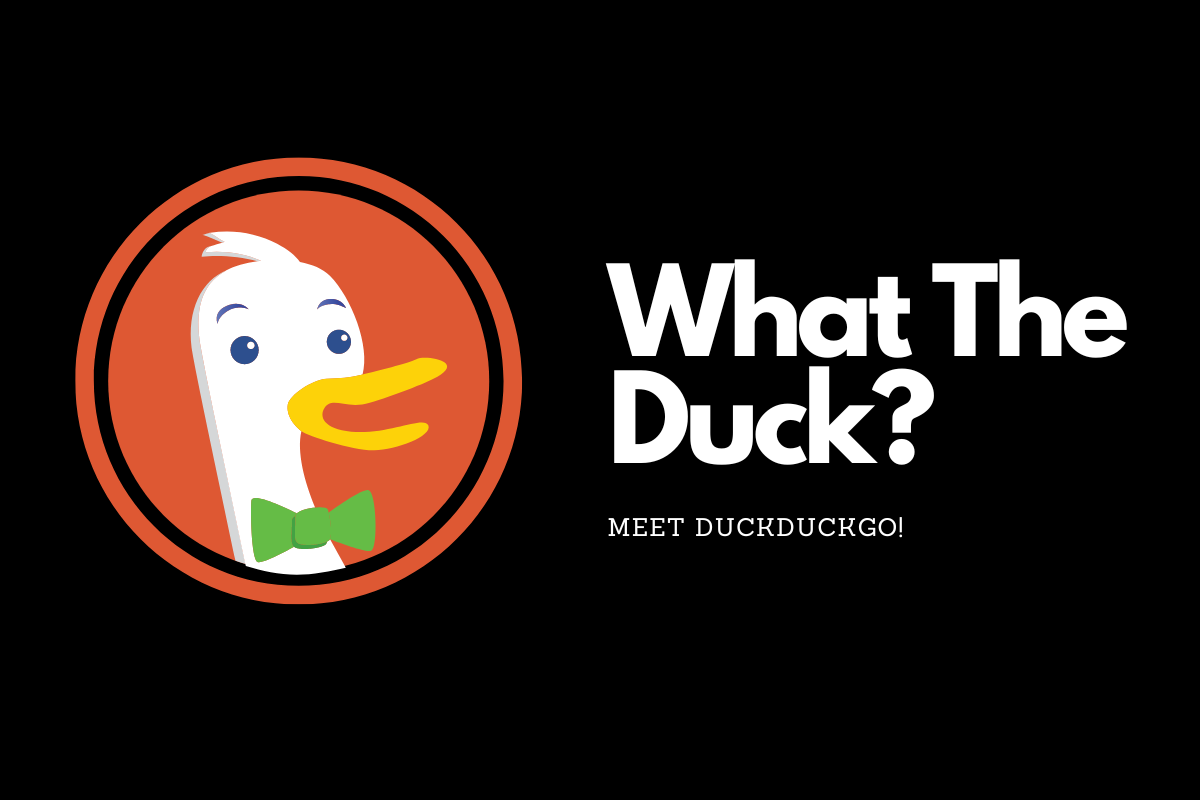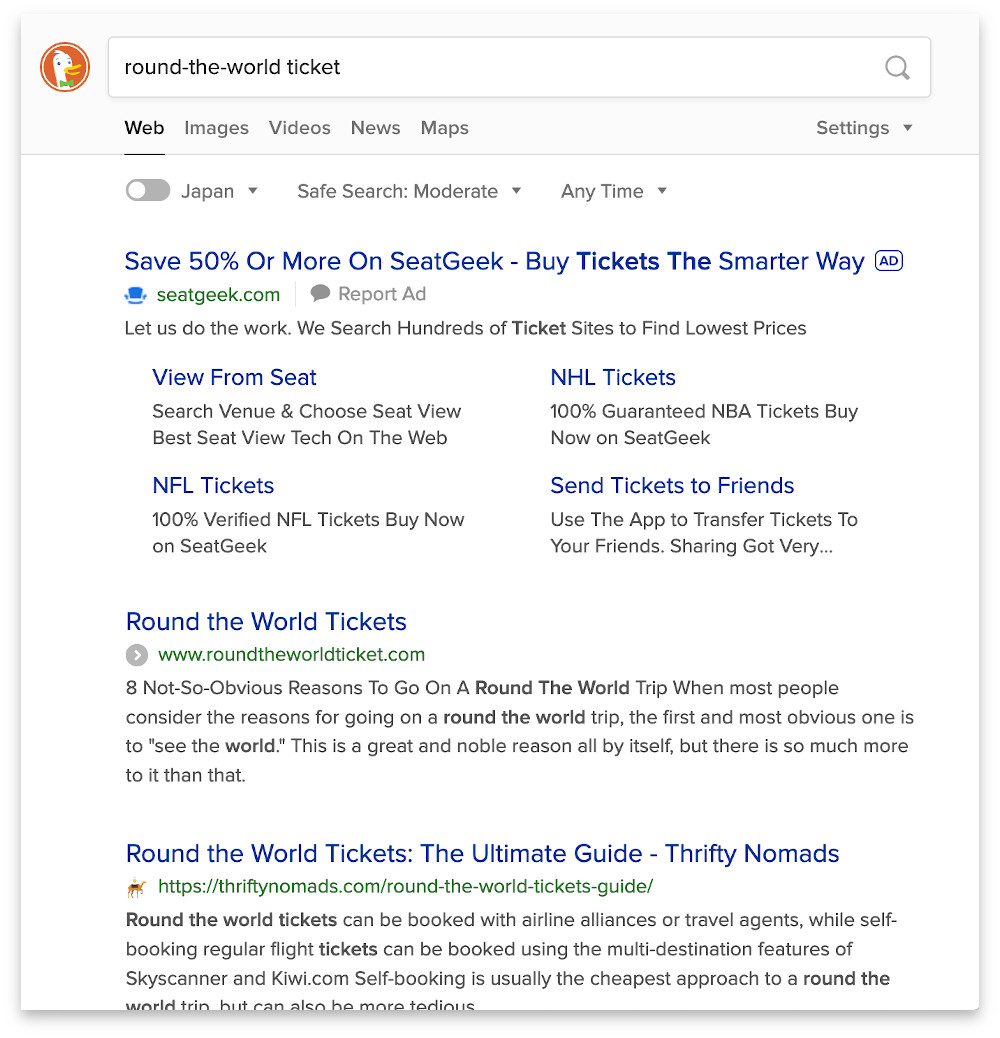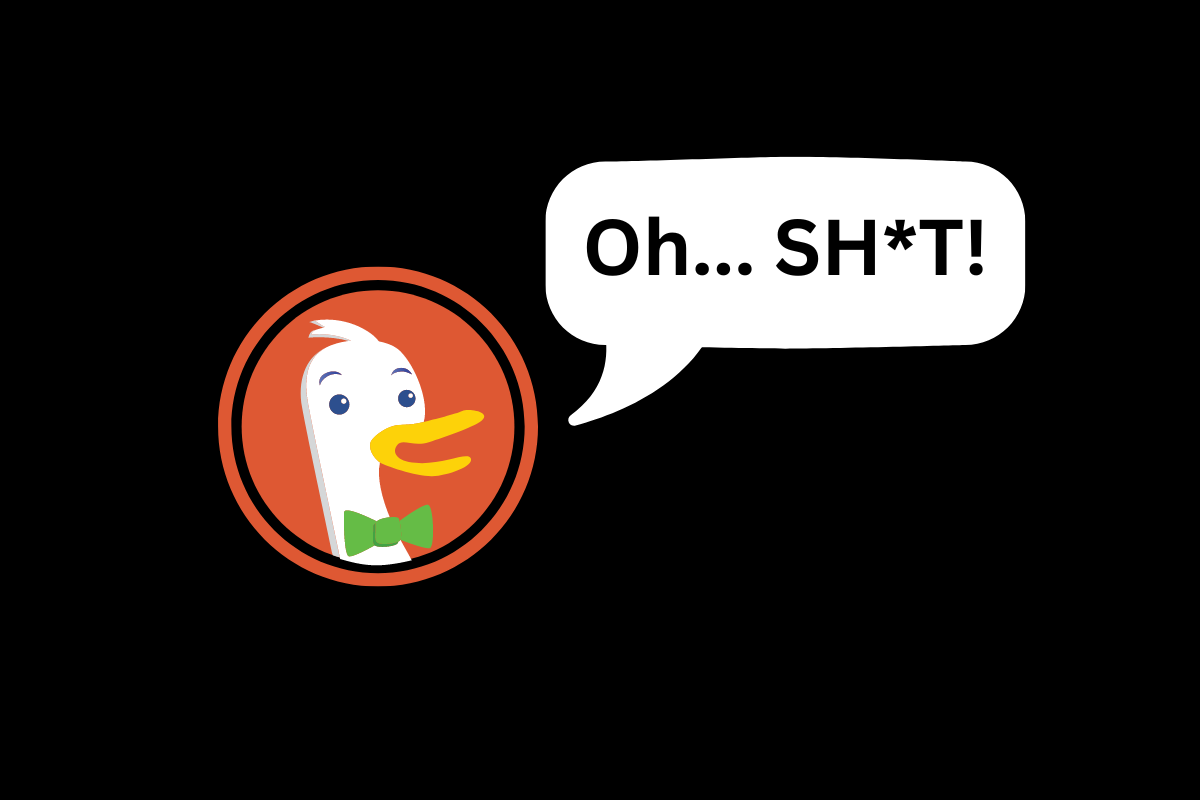There’s a reason privacy experts aren’t happy with DuckDuckGo and it relates directly to what is now known as “the DuckDuckGo controversy”
DuckDuckGo built its reputation as a privacy browser off the back of Google’s relentless tracking and data-harvesting practices. DuckDuckGo wanted to do things differently. No adverts, no selling data, and no collecting data.
It uses Microsoft’s Bing for its results, filling in the gaps of its own database and crawlers. Microsoft and Google are titans with tech to match, so doing third-party search without them is a costly affair that very few companies can take on.
Although this is exactly what Brave has done with Brave Search.
And for a while, DuckDuckGo was the darling of the data security world. Next to Google, it looked like an angel with its ad blockers, its privacy-first approach to data collection, and the fact that it did not sell any collected data onto third parties.
But then something happened, something that led to what is now known as The Great DuckDuckGo Controversy. But what exactly happened? And, more importantly, does any of it actually matter? Let’s unpack the whole shebang and find out once and for all…
The DuckDuckGo Controversy

DuckDuckGo had a bit of a “mare” back in 2022. Some bright spark decided it’d be a fabulous idea to let Microsoft hoover up user data via its mobile browser.
Brilliant, right? This is essentially privacy browser suicide. Any kind of access of Big Tech to a users’ data is ALWAYS going to cause a storm of bad PR. And that’s what happened. This is also one of the reasons why most privacy experts now recommend Brave over DuckDuckGo.
It created such a stir that DuckDuckGo’s CEO, Gabriel Weinberg, had to take matters into his own hands and pen a long and complicated Reddit post.
Hi, I’m the CEO & Founder of DuckDuckGo. To be clear (since I already see confusion in the comments), when you load our search results, you are anonymous, including ads. Also on 3rd-party websites we actually do block Microsoft 3rd-party cookies in our browsers plus more protections including fingerprinting protection.
That is, this article is not about our search engine, but about our browsers — we have browsers (really all-in-one privacy apps) for iOS, Android, and now Mac (in beta).
When most other browsers on the market talk about tracking protection they are usually referring to 3rd-party cookie protection and fingerprinting protection, and our browsers impose these same restrictions on all third-party tracking scripts, including those from Microsoft.
We also have a lot of other above-and-beyond web protections that also apply to Microsoft scripts (and everyone else), e.g., Global Privacy Control, first-party cookie expiration, referrer header trimming, new cookie consent handling (in our Mac beta), fire button (one-click) data clearing, and more.
You can read the full thing here.
The Fall Out & The Blocking of Microsoft Scripts

As you can imagine, DuckDuckGo’s users were about as happy as a cat in a hot tin bath. There was uproar. Backlash. The social feeds went into meltdown. Pitchforks and flaming torches at dawn. The usual.
Eventually, DDG managed to redo its deal with Microsoft and get its scripts removed – although the details of the deal are protected by NDAs.
Now, DDG is blocking not just Microsoft, but also Facebook and Google trackers. They’re going above and beyond what most other browsers do, which usually just mess around with cookies and fingerprinting.
DDG’s approach is to stop those tracking scripts from even loading in the first place. Other browsers tend to be a bit more hospitable, letting them in but then trying to limit the damage.
But let’s be real, it’s not all sunshine and rainbows just yet. DDG admits there are still some cases where Microsoft’s ad scripts might sneak through, especially for conversion tracking. But they’re working on it, trying to find a more private way to handle ad conversions.
Other privacy advocates and anti-censorship campaigners have also called into question DuckDuckGo’s approach to censorship in recent years, claiming it is removing certain results from its SERPs:
Here are some relevant quotes from the transcript:
DuckDuckGo has recently started censoring certain kinds of search results on the search engine. Now it started off by censoring Russian propaganda which maybe sounds good in theory, right? … The problem with censorship, with censoring what kind of information people can access … is that there’s no end to it. Once you start going down that slope, it does not stop.
The excuse today for censoring search results is removing access, I guess, or making it so that less people know about torrenting sites and a command line program that lets you download videos off of the internet. Why is it so important to censor this? I don’t know, maybe because somebody with some copyright is pressuring them to do it.
Source
Full Transparency, Tracker Protection Added To GitHub
To their credit, DDG is being pretty upfront about all this. They’ve even put their tracker protection list on GitHub for everyone to see. And they’ve updated their Privacy Dashboard and help pages to break it all down for users.
At the end of the day, DDG wants to make it crystal clear that when you view ads or search results on their platform, it’s all anonymous. Microsoft has promised not to link any ad-click behavior to user profiles or use it for creepy tracking and profiling.
But again you have to take Microsoft’s word on that which is a big ask.
Bottomline? DDG made the right changes but the PR was bad for its brand and this is why we’ve seen a massive upsurge in Brave browser adoption – it blocks everything by default, tracks nothing, and even has its own search engine model.


